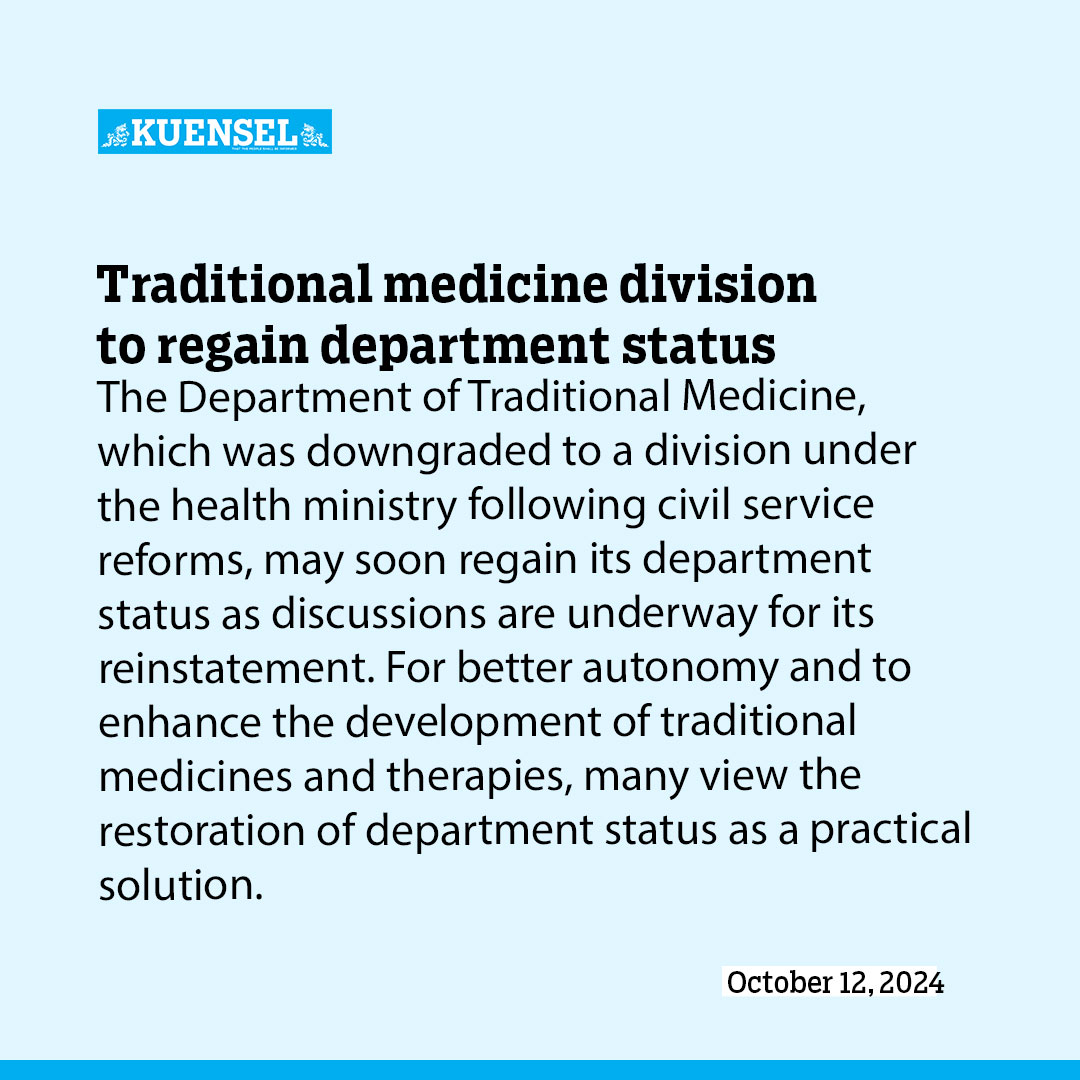Thinley Namgay
The Department of Traditional Medicine, which was downgraded to a division under the health ministry following civil service reforms, may soon regain its department status as discussions are underway for its reinstatement.
For better autonomy and to enhance the development of traditional medicines and therapies, many view the restoration of department status as a practical solution.
Health Minister Tandin Wangchuk, at the meet-the-press yesterday, announced that the ministry has discussed the proposal to reinstate the Department of Traditional Medicine and will soon submit it to the Cabinet as part of broader efforts to strengthen the healthcare system.
According to the minister, once the cabinet approves the proposal, it will be forwarded to the Royal Civil Service Commission for further action.
A significant concern for the Traditional Medicine Division is the reduced budget allocation in the 13th Plan, which officials say has been demotivating for practitioners and is hindering efforts to promote traditional medicine across the country.
The budget allocated for traditional medicine in the 13th Plan stands at Nu 134 million, a decrease of Nu 62 million from the Nu 196 million budget in the 12th Plan.
Health Minister Tandin Wangchuk explained that this reduction is due to the integration of clinical aspects of traditional medicine under the National Medical Services in the 13th Plan.
The minister also mentioned that the health ministry is seeking additional funding from partners such as the World Health Organisation and the Bhutan Foundation to support traditional medicine. “All traditional medicine services are provided under a single administration in all hospitals, facilitating collaboration between modern and traditional services,” Lyonpo said.
However, on the ground, many Menpas (traditional medicine practitioners) and Drungtshos (traditional doctors) have voiced concerns over their lack of representation in hospital decision-making processes. They have urged the ministry to address the skepticism of modern medical doctors and ensure that traditional therapies are properly integrated into mainstream healthcare.
In response, the health minister confirmed that Drungtshos are now included as members of the Human Resource Committee and other key committees in regional and major hospitals to represent traditional medicine.
Lyonpo Tandin Wangchuk also highlighted efforts to establish collaborative forums, such as case presentations, knowledge exchanges, cross-referrals, and shared treatment outcomes between modern and traditional medicine, aiming to foster mutual understanding and respect between the two fields.
He expressed confidence that many of the current issues will be resolved through effective planning, close engagement with stakeholders, continuous evaluation, and monitoring, along with the reinstatement of the Traditional Medicine Division to department status.
The ministry is in the advanced stages of developing a long-term strategy to position Bhutan as a Centre of Excellence in traditional medicine or sowa rigpa. This strategy is expected to enhance the services and products related to traditional medicine.
Officials from the Traditional Medicine Division said that beyond offering alternative medical services, traditional medicine holds significant economic potential for Bhutan, as the necessary expertise and resources are locally available.


